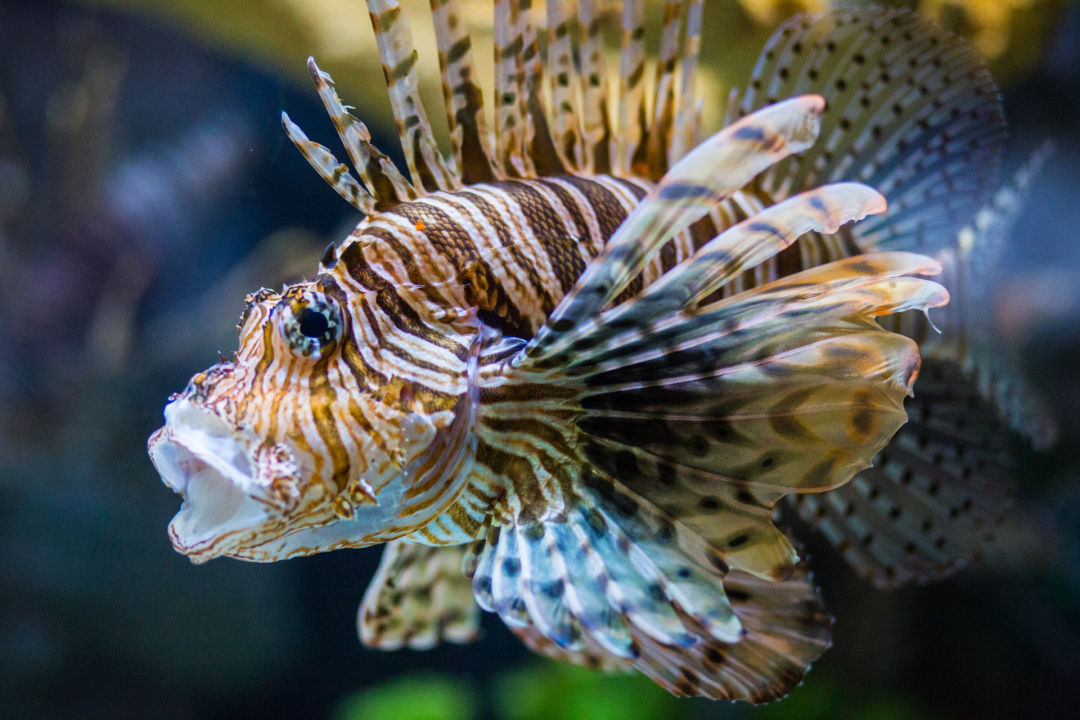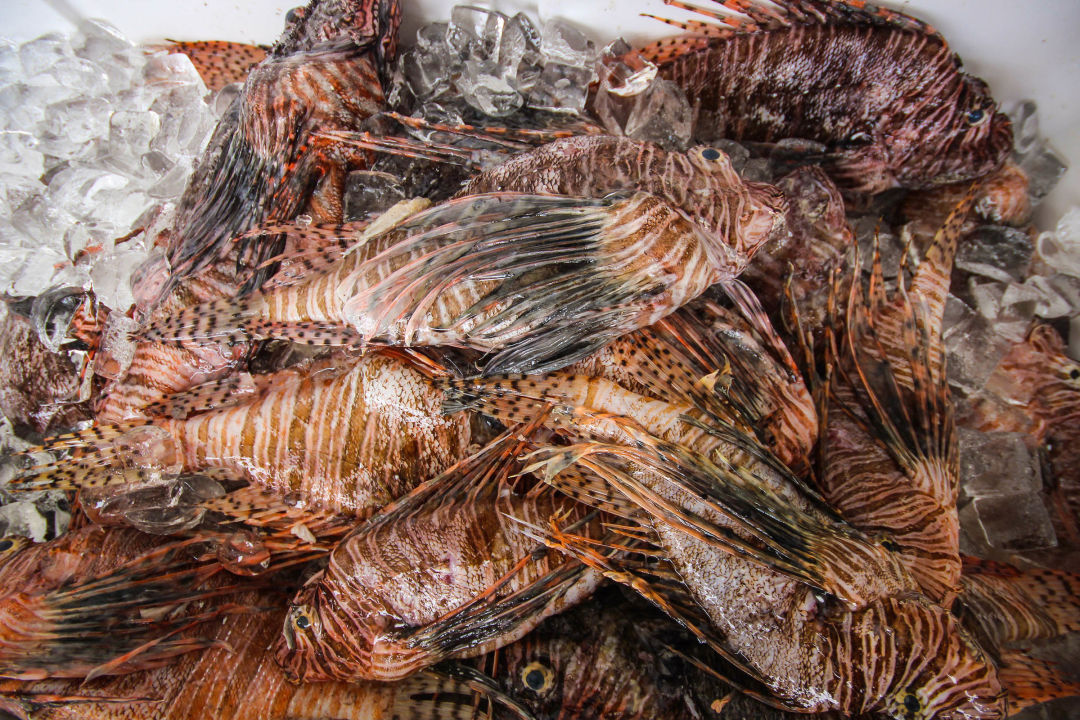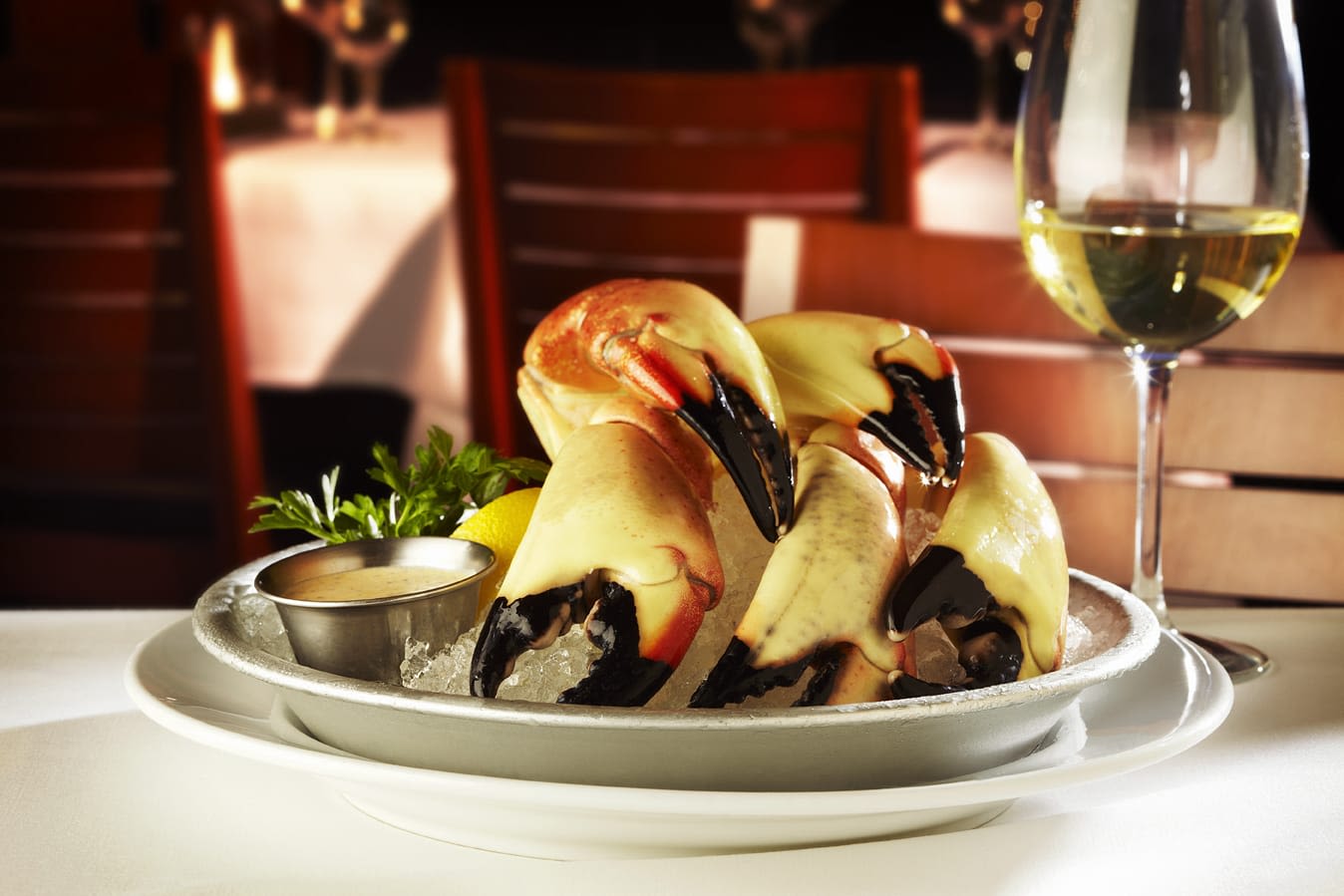This Weekend's Lionfish Derby Combines Hunting and Environmental Conservation

Invasive lionfish destroy our marine environments.
On Saturday, environmental conservationists will cheer on hunters trying to overfish our reefs.
It isn’t opposite day, and our local environmentalists haven’t sold out. It’s the day of hunting during Mote Marine Laboratory and Aquarium’s fourth annual Lionfish Derby.
Dr. James Locascio, a program manager in Mote’s fisheries habitat ecology department, is running the event. “[The derby] creates a social opportunity for people to come to the events,” Locascio says. “Essentially, while it is a fishing derby, it can be a scientific event too.”
Lionfish terrorize our reefs and decimate local fish populations. They are invasive to this area and weren’t seen in Florida until 1985. They originate from the Indo-Pacific region, but found their way into personal aquariums in America. Irresponsible owners who grew tired of the strange-looking fish dumped them in the Atlantic Ocean.
Lionfish sport venomous spines along their backs and sides, and they have few natural predators here. They also eat with a ravenous appetite. Oregon State researchers in the Bahamas saw one lionfish eat 20 small fish in 30 minutes. One lionfish can cut down young fish populations by 79 percent in five weeks. They threaten everything, from reefs to tourism to fishing.
Mote’s Lionfish Derby will feature teams of hunters killing as many lionfish as possible. The event begins today with the captains meeting, and continues tomorrow with the hunt. Sunday features the weigh-in and a cooking competition. The Beach House, Mattison’s, Deep Sea Diner, Indigenous and The Seafood Shack will each serve a dish featuring lionfish.
Lionfish are venomous, not poisonous, meaning they can only harm a victim through their venomous spines. When the spines are safely removed, lionfish are completely safe to eat. They avoid parasites, so their meat is clean. “It’s firm, but it has that lightness and flakiness to it that allow you to make many different ways,” Locascio says. “It’s a nice-tasting, light fish." Locascio will also examine the lionfishes' stomach content to better understand what they eat.

The lionfish derby allows hunters to rid our waters of this invasive species.
Hunters dive and spear the fish (although a YouTube video shows one high-tech hunter using an underwater Glock). Scuba divers carry a case to keep their speared fish as they continue hunting. As long as hunters don’t touch the venomous spines, the lionfish pose no threat. A sting from the spines can cause pain, swelling, nausea and fever. In very rare instances (usually among young children, the elderly, the sick and the allergic), stings can cause heart failure and death.
Allie ElHage has been hunting lionfish since October 2011, and he even invented the popular lionfish containment device ZooKeeper. He says the key to avoiding injury when hunting lionfish is smart diving techniques, puncture-resistant gloves and puncture-resistant containers.
“Before I hunted lionfish, I went angling a lot,” ElHage says. “Being able to scuba dive and hunt a fish, it’s addictive. It’s like Angry Birds. You can’t wait for the next time you’re going to go and get some more.”
The tasting event is already sold out, but registration for the derby is still open. Cost is $120, and teams must be between two and four people. Late registration is tonight from 5:30-6:30 p.m. Weigh-ins and award presentations will be Sunday from noon to 3 p.m. Mote is partnering with the Reef Environmental Education Foundation, which promotes marine environment conservation and sanctions lionfish derbies.



